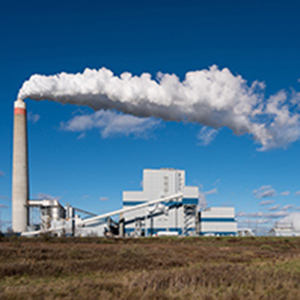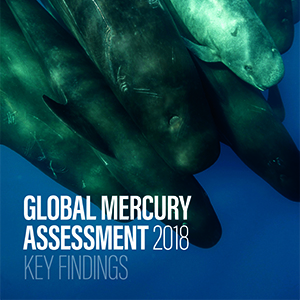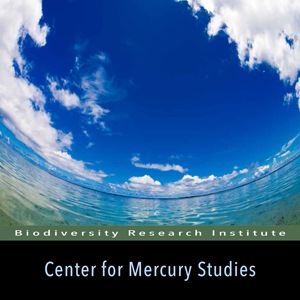Mercury Air Transport & Fate Research
The UN Environment Programme’s Global Mercury Partnership (GMP) has identified eight priorities for action, or partnership areas, and established an advisory group for each.
BRI is a co-chair for the Mercury Air Transport & Fate Research (F&T) partnership area and hosts this page for sharing information to the group.

The Mercury Air Transport & Fate Research partnership group works toward improving global understanding of mercury and for predicting trends. F&T’s members have contributed to the preparation of the Global Mercury Assessment (GMA) for the Ad-Hoc Working Groups, the Intergovernmental Negotiating Committee meetings, and later for the meetings of the Conference of Parties (COP).
To download the Partnership Area Fact Sheet, click here.
Building a Mercury Monitoring Partnership
UNEP’s Governing Board of the Specific International Programme (SIP) have approved two projects for facilitating capacity-building with technical assistance and technology transfer for managing mercury in the following regions:
- The Caribbean Region – BRI’s extensive mercury work in the Caribbean Region has led the way for the first network of integrated laboratories to be established. The primary toxicology laboratory is be located in Antigua and Barbuda.
- Gabon, Africa – BRI has partnered with the government of Gabon for this initiative, which is in its early stage of development.
UPCOMING MEETING: Mercury Air Transport & Fate Meeting
October 6, 2023, 9 am – 11 am (EDT), 3 pm-5 pm (CET)
Planned Agenda
Open meeting (5 minutes)
- Celia Chen, Research Professor, Dartmouth College
- David Evers, Executive Director, Biodiversity Research Institute
- Nicola Pirrone, Research Director of the National Research Council of Italy
Effectiveness Evaluation and the OESG meeting (10 minutes each, 20 minutes total)
- Terry Keating, Senior Scientist, USEPA Office of Research and Development
- Eisaku Toda, Senior Programme Officer, Secretariat of the Minamata Convention on Mercury
OESG Global Datasets and modeling (8 minutes each, discussion 15 minutes at the end; 50 minutes total)
- Air – Sandy Steffen, Senior Mercury Researcher, Environment and Climate Change Canada
- Human – Milena Horvat, Head, Department of Environmental Sciences, Jožef Stefan Institute
- Biota – Olha Furman, Department of Agriculture, Water and the Environment, Australian Government
- Other matrices – Sylvain Bouchet, Researcher, ETH Zürich
- Modeling – Ashu Dastoor, Research Scientist, Environment and Climate Change Canada
Global Data platforms (10 minutes total)
- GEO-GOS4M Platform contribution to the MCM – Nicola Pirrone-OESG Europe; http://www.gos4m.org/home/
Integration of Biodiversity with Minamata (10 minutes)
- Dave Evers
Upcoming special issues on Hg (15 minutes total)
- Ambio – Celia Chen (4 minutes)
- ICMGP – Joy Leaner/Lynwill Martin; https://www.mercurycapetown.com/ (10 minutes)
- Ecotoxicology Special Issue – Dave Evers (4 minutes)
Planning for COP5 (5 minutes)
- COP 5 Side Events and Knowledge Labs – Dave Evers
Close meeting (5 minutes)
Minamata Convention on Mercury, Pre-COP5 Virtual Side Events
BRI is part of three online side events, all of which are one hour in duration and take place using the WebEx platform.
Reinforcing the health sector’s commitment to the implementation of the Minamata Convention on Mercury: GEF-UNEP-WHO projects on mercury-added products
10 October, 2024, 16h30-17h30 CEST. Register here.
Navigating uncharted waters towards Mercury-Free SIDS
10 October, 2024, 17h45-18h45 CEST. Register here.
Addressing Hg pollution and biodiversity: from science to action
12 October, 2024, 11h00-12h00 CEST. Register here.
Partnership News and Updates
Inception Meeting for the Global Project on Elimination of Mercury Containing Skin Lighting Projects; Geneva February 14th-15th 2023
ICMGP 2022 – Mercury Synthesis Workshop: Integrating Research and Policy, Wednesday, August 31st, 2022
The Synthesis Workshop provided a forum for sharing and enhancing communication among a diverse group of researchers, managers, and policymakers to discuss recently completed synthesis papers on current important topics in mercury science. The workshop featured speakers from the Minamata Secretariat and the Global Mercury Partnerships along with science policy experts working on other environmental conventions. The Workshop was held virtually on two different days to accommodate the different global time zones – August 31st (for North America, Europe, and Africa) and September 1st or 2nd (Asia and Australia).
Meeting Agenda
Video Recording – August 31st, 2022
Video Recording – September 1st, 2022
Guidance on Mercury Monitoring Document
Over the past 18 months, members of the Transport and Fate Partnership and other scientists have generated a guidance document for monitoring mercury to support the implementation of the requirements stated in Article 22 (Effectiveness Evaluation) of the Minamata Convention. The draft is ready for the COP-4 virtual meeting in November.
Priority Actions

To meet its objectives, the Partnership Area puts priority on the following actions:
- Accelerating the development of sound scientific information in global mercury cycling and its patterns
- Enhancing compilation and sharing of such information among various stakeholders
- Providing technical assistance and training
- Enhancing the development of a globally-coordinated mercury observation system including air and water ecosystems
- Enhancing the exchange of information and cooperation with relevant international organizations, groups and programmes
Members of the Mercury Air Transport & Fate Research partnership group can find more information on the Minamata Convention website.
Related Articles and Publications

The UNEP website hosts a wide variety of resources. We will list here those specifically relevant to our members.
Global Mercury Assessment 2018 – Key Findings
Are mercury emissions from satellite electric propulsion an environmental concern?
Dan Fourie et al. 2019 Environ. Res. Lett. 14 124021



